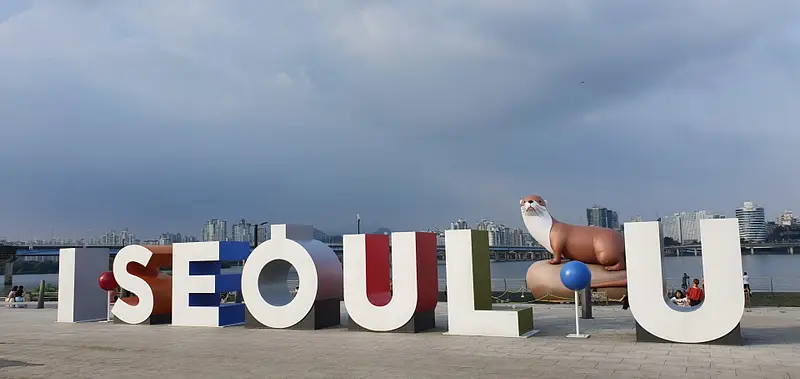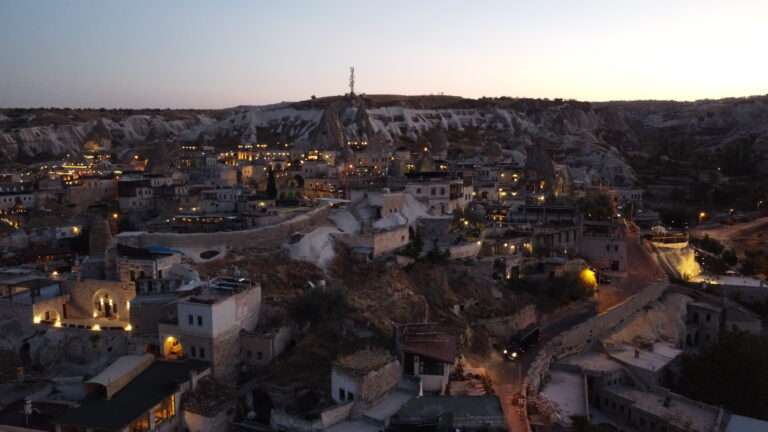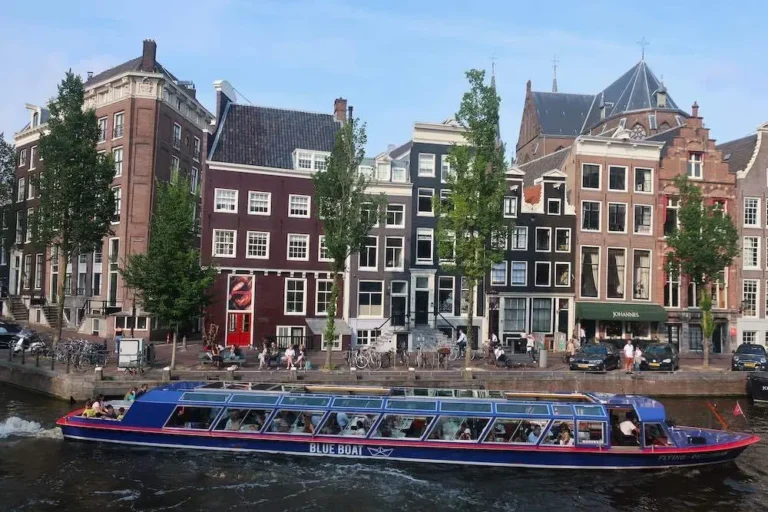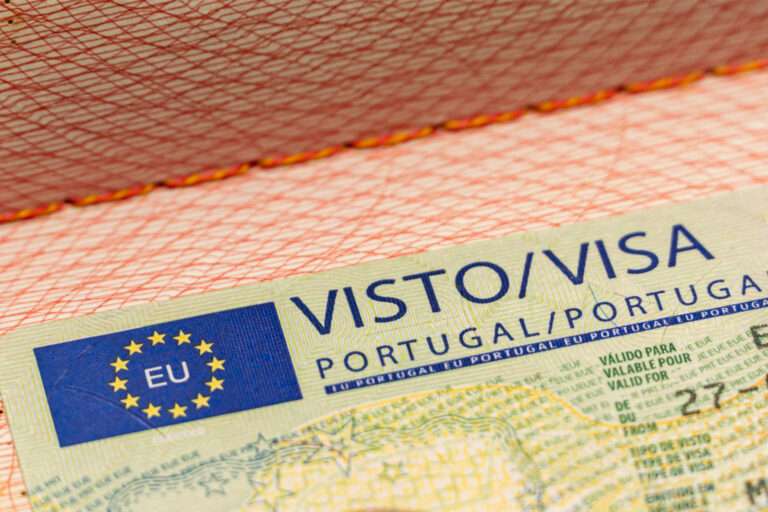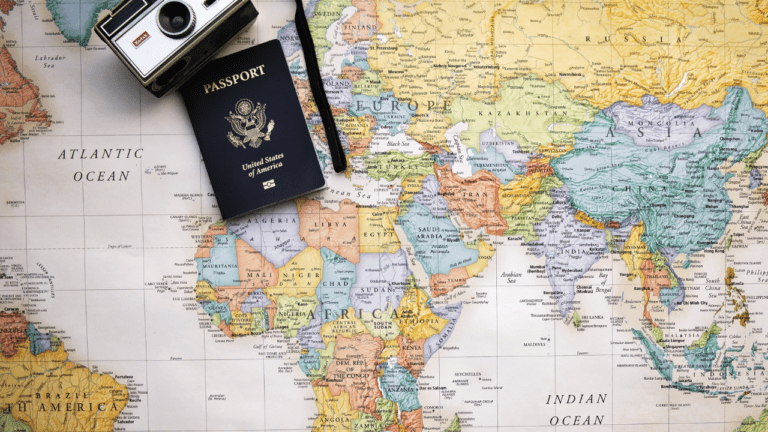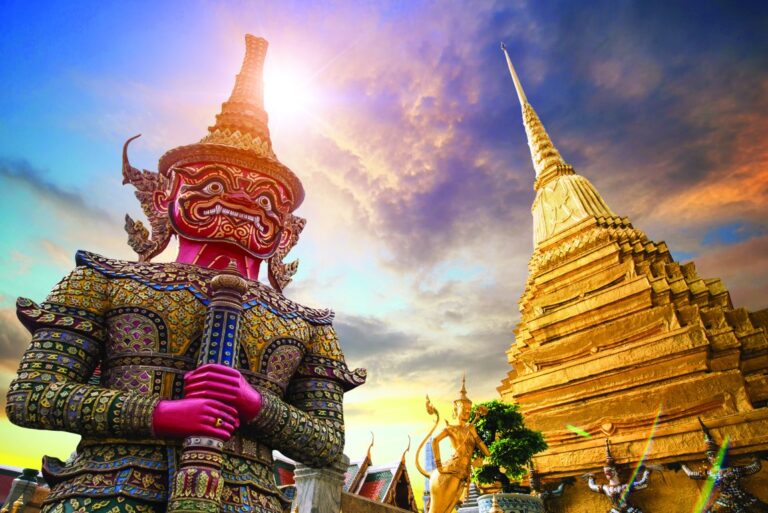If you’ve been looking for an opportunity to use your remote job to move to Asia, the new Korea Digital Nomad Visa might be exactly what you’re looking for. Can you see yourself working from a cozy café in Seoul, surrounded by the energy of one of the world’s most amazing cities? Well, guess what? Your dreams might just come true because South Korea has rolled out its very own Digital Nomad Visa! Yes, you can now experience life in the Land of the Morning Calm while working remotely. I’m going to tell you everything you need to know about getting the Digital Nomad Visa and life in S Korea.
What is a Digital Nomad Visa?
Before we get into the details, I want to clarify what a Digital Nomad Visa is. Basically, it’s a special type of visa designed for remote workers, freelancers, and entrepreneurs who wish to live in a country while working for clients or companies based elsewhere. Unlike traditional work visas, a Digital Nomad Visa doesn’t tie you to a specific employer within the host country. It’s a perfect blend of work and travel, allowing you to explore a new culture without interrupting your career.
Why Choose South Korea?
Tech-Friendly Infrastructure
South Korea is a tech haven. With one of the fastest internet speeds in the world, staying connected with your clients and colleagues will be a breeze. The country is also known for its advanced technology, making it an ideal place for digital professionals.
Vibrant Culture
From K-pop and K-dramas to traditional tea ceremonies and historic palaces, South Korea offers a blend of modern life and tradition. There’s always something new to discover, whether it’s the busy streets of Seoul or the serene temples in the countryside.
Safety and Healthcare
South Korea is renowned for its safety and excellent healthcare system. As a digital nomad, knowing that you have access to top-notch medical facilities provides great peace of mind.
Delicious Food
Who can resist Korean cuisine? From mouth-watering BBQ to comforting bowls of bibimbap and the spicy kick of kimchi, South Korea is a paradise for foodies.
The South Korea Digital Nomad Visa: An Overview
Eligibility Criteria
To qualify for South Korea’s Digital Nomad Visa, you need to meet certain criteria:
- Employment Status: You must be employed by a company outside of South Korea or be a freelancer/entrepreneur with clients outside the country.
- Income Requirement: You need to show proof of a stable income. While the exact amount can vary, a rough estimate is around $3,000 USD per month.
- Health Insurance: You must have health insurance that covers you during your stay in South Korea.
- Clean Criminal Record: A background check is necessary to ensure you have no serious criminal history.
Application Process
Here’s a step-by-step guide to applying for the Digital Nomad Visa:
- Prepare Your Documents: This includes your passport, proof of employment, income statements, health insurance, and background check.
- Submit Your Application: Applications can be submitted online through the Korean Immigration Service website or at a Korean consulate in your home country.
- Wait for Approval: The processing time can vary, but it usually takes a few weeks.
- Enter South Korea: Once approved, you can enter South Korea and start living your digital nomad dream!
Duration and Extensions
The visa is typically valid for one year, with the possibility of extensions. Extensions are granted based on continued eligibility and compliance with visa conditions.
Living as a Digital Nomad in South Korea
Accommodation
Finding the right place to stay is crucial for a smooth digital nomad experience. Whether you’re looking for short-term flexibility or long-term stability, South Korea offers a range of options to suit every budget.
Short-Term Stays
For short-term stays, consider booking through platforms like Airbnb or staying in guesthouses and hostels. These options provide flexibility and the opportunity to meet other travelers. Here are a few recommended spots:
- Hongdae Lazy Fox Hostel in Seoul: Known for its vibrant community and central location in one of Seoul’s trendiest neighborhoods, this hostel is a great option for digital nomads looking to stay in the heart of the action.
- Kimchee Downtown Guesthouse in Seoul: Located near major attractions and transportation hubs, this guesthouse offers affordable private rooms and dorms, with common areas perfect for socializing and working.
Long-Term Rentals
If you’re planning a longer stay, renting an apartment might be more economical and comfortable. Here are some platforms and examples of what you might find:
- Ziptoss: A popular site for expats, offering a variety of apartments in different price ranges. For example, you might find a cozy one-bedroom in Gangnam for around $1,000 USD per month or a shared apartment in Hongdae for $600 USD per month.
- Craigslist Korea: Another useful site for finding apartments. Listings vary, but you can often find studios or shared accommodations for $500 – $1,500 USD per month, depending on the location and amenities.
- Real Estate Agencies: Working with a real estate agent can help you find local deals and navigate lease agreements. Deposits (jeonse) can be high, but monthly rent (wolse) options are available with lower upfront costs.
Long-Term Hostels
If you’re on a budget and prefer the social environment of hostels, several places cater to long-term stays:
- Dustin Guesthouse Itaewon in Seoul: Offers discounts for long-term stays and provides a community vibe with regular social events, making it easier to meet other digital nomads.
- Bunk Guesthouse Hongdae in Seoul: Known for its friendly staff and comfortable common areas, this hostel also offers long-term rates for those planning to stay a month or more.
Coworking Spaces
South Korea boasts numerous coworking spaces perfect for digital nomads. Here are a few popular ones:
- WeWork: With multiple locations in Seoul, WeWork offers a variety of workspaces to suit your needs.
- FastFive: Known for its vibrant community and excellent facilities.
- Seoul Startup Hub: A great place for networking with other entrepreneurs and freelancers.
Cost of Living
The cost of living in South Korea can vary significantly based on your lifestyle and location. Seoul is the most expensive city, but even here, it’s possible to live comfortably on a moderate budget. Here’s a rough breakdown:
- Rent: $500 – $1,500 USD per month, depending on location and type of accommodation.
- Food: $300 – $600 USD per month.
- Transportation: $50 – $100 USD per month.
- Utilities and Internet: $100 – $150 USD per month.
Transportation
South Korea’s transportation system is efficient and affordable. The subway and bus systems cover most areas, and taxis are also reasonably priced. For longer journeys, high-speed trains like the KTX are a great option.
Language Barrier
While many young Koreans speak English, learning some basic Korean phrases can be incredibly helpful. Apps like Duolingo and language exchange meetups can aid in your learning process.
Exploring South Korea
South Korea offers a diverse array of attractions and experiences that cater to all kinds of travelers. Whether you’re a history buff, nature lover, foodie, or city explorer, there’s something for everyone. Let’s dive deeper into the must-visit cities and cultural experiences that make South Korea such a fascinating destination.
Must-Visit Cities
Seoul
The capital city is a dynamic metropolis where ancient traditions meet cutting-edge technology. Here are some highlights:
- Gyeongbokgung Palace: This iconic palace, built in 1395, is a must-visit. You can explore the beautiful architecture and catch the changing of the guard ceremony.
- Myeongdong: A bustling shopping district where you can find everything from skincare products to the latest fashion. Don’t forget to try the street food here!
- Bukchon Hanok Village: A picturesque area with traditional Korean houses (hanoks) that offer a glimpse into Korea’s past.
- Namsan Seoul Tower: For panoramic views of the city, head to this tower. The Namsan Cable Car offers a scenic route up the mountain.
Busan
South Korea’s second-largest city is known for its beautiful beaches, seafood, and vibrant cultural scene:
- Haeundae Beach: One of Korea’s most famous beaches, perfect for relaxing, swimming, and enjoying various water sports.
- Jagalchi Fish Market: The largest seafood market in Korea, where you can select fresh seafood and have it prepared on-site.
- Gamcheon Culture Village: Often referred to as the “Machu Picchu of Busan,” this colorful village is known for its artistic murals and charming alleyways.
- Beomeosa Temple: A serene temple located on the slopes of Geumjeongsan Mountain, offering a peaceful escape from the city.
Jeju Island
This volcanic island is a popular destination for both Koreans and international tourists, known for its natural beauty and unique attractions:
- Hallasan National Park: Home to South Korea’s highest peak, Mount Hallasan. Hiking to the summit offers stunning views and a chance to see diverse flora and fauna.
- Manjanggul Lava Tube: One of the longest lava tubes in the world, this underground marvel is a UNESCO World Heritage site.
- Jeju Loveland: An outdoor sculpture park focused on themes of sexuality and eroticism, offering a quirky and entertaining visit.
- Seongsan Ilchulbong (Sunrise Peak): A volcanic crater that’s a great spot for watching the sunrise, with a relatively easy hike to the top.
Cultural Experiences
South Korea’s rich cultural heritage is evident in its festivals, traditional practices, and modern-day celebrations:
Traditional Hanbok
Wearing a hanbok, traditional Korean attire, is a unique way to experience Korean culture. Many places, especially near palaces like Gyeongbokgung, offer hanbok rentals. Wearing a hanbok often grants you free or discounted entry to cultural sites.
Tea Ceremonies
Participating in a traditional Korean tea ceremony is a serene and enlightening experience. These ceremonies are a deep-rooted part of Korean culture, emphasizing harmony, respect, and tranquility. You can join a tea ceremony at places like the Korean Tea Institute in Insadong, Seoul.
Festivals
South Korea hosts numerous festivals throughout the year, celebrating everything from food to art:
- Boryeong Mud Festival: Held every summer in Boryeong, this festival is famous for its mud-based activities, including mud wrestling, mudslides, and mud baths.
- Busan International Film Festival (BIFF): One of the most significant film festivals in Asia, attracting filmmakers and movie enthusiasts from around the world.
- Seoul Lantern Festival: Held in November along the Cheonggyecheon Stream, this festival features stunning lantern displays and installations.
- Andong Mask Dance Festival: Celebrates traditional Korean mask dances (talchum), offering performances, workshops, and parades.
Tips for a Smooth Experience
Living in a new country can be challenging, but with some preparation and flexibility, you can ensure a smooth and enjoyable experience. Here are some practical tips:
Stay Connected
Having reliable internet access is crucial for digital nomads. Here are your options:
- Local SIM Cards: Purchase a local SIM card from providers like KT, SK Telecom, or LG U+. These can be found at the airport or in local shops. They offer various plans based on your data needs.
- Portable Wi-Fi Devices: Rent a portable Wi-Fi device (pocket Wi-Fi) if you need multiple devices connected or if you’re traveling around the country. These are available for rent at the airport and can be reserved online in advance.
Financial Management
Managing your finances effectively will make your stay more comfortable:
- Local Bank Account: If you’re staying long-term, consider setting up a local bank account. Shinhan Bank and KEB Hana Bank are popular among expats and offer services in English.
- ATM Access: ATMs are widely available, but not all accept foreign cards. Look for global ATMs at convenience stores like 7-Eleven and CU.
- Currency Exchange: Exchange rates are generally better at banks or authorized exchange centers rather than at the airport.
Legal and Tax Considerations
Understanding local laws and tax regulations is important to avoid any legal issues:
- Visa Conditions: Make sure you comply with the conditions of your Digital Nomad Visa. Overstaying or violating terms can lead to fines or deportation.
- Taxes: South Korea has a tax treaty with many countries, which can prevent double taxation. It’s wise to consult with a tax professional familiar with both South Korean and your home country’s tax systems.
Health and Wellness
Staying healthy is vital for a productive and enjoyable stay:
- Healthcare: South Korea has excellent healthcare facilities. If you need medical assistance, visit an international clinic or a hospital with English-speaking staff, like Seoul National University Hospital or Samsung Medical Center.
- Fitness: Join a local gym or fitness center. Many offer classes in English, and some have flexible membership options. Outdoor activities like hiking are also popular and a great way to stay fit while exploring the country.
Cultural Etiquette
Respecting local customs and etiquette will help you integrate more smoothly into Korean society:
- Bowing: Bowing is a common greeting and sign of respect. The depth of the bow can vary depending on the situation and the person you’re greeting.
- Shoes Off: It’s customary to remove your shoes when entering someone’s home and certain traditional establishments.
- Dining Etiquette: Wait for the eldest person to start eating before you begin. Using both hands to pour drinks for others is considered polite.
Language Barrier
While many young Koreans speak English, especially in major cities, learning basic Korean phrases can be incredibly helpful:
- Apps and Resources: Use language learning apps like Duolingo or Memrise. You can also attend language exchange meetups or take Korean classes.
- Translation Apps: Google Translate and Papago are excellent tools for overcoming language barriers in real-time.
Homesickness
Feeling homesick is normal, especially during long stays away from home. Here are some tips to cope:
- Stay Connected: Regular video calls with family and friends can help reduce feelings of isolation.
- Join Expat Communities: There are numerous expat groups and online forums where you can meet fellow foreigners and share experiences.
- Engage in Local Activities: Participating in local events and hobbies can help you feel more integrated and less lonely.
South Korea’s Digital Nomad Visa is a great opportunity for remote workers seeking adventure, cultural immersion, and a tech-friendly environment. South Korea offers a unique and fulfilling experience for digital nomads. Start planning your South Korean adventure today and get ready to make unforgettable memories while working from one of the most exciting countries in the world.
Happy travels, and see you in Seoul!
